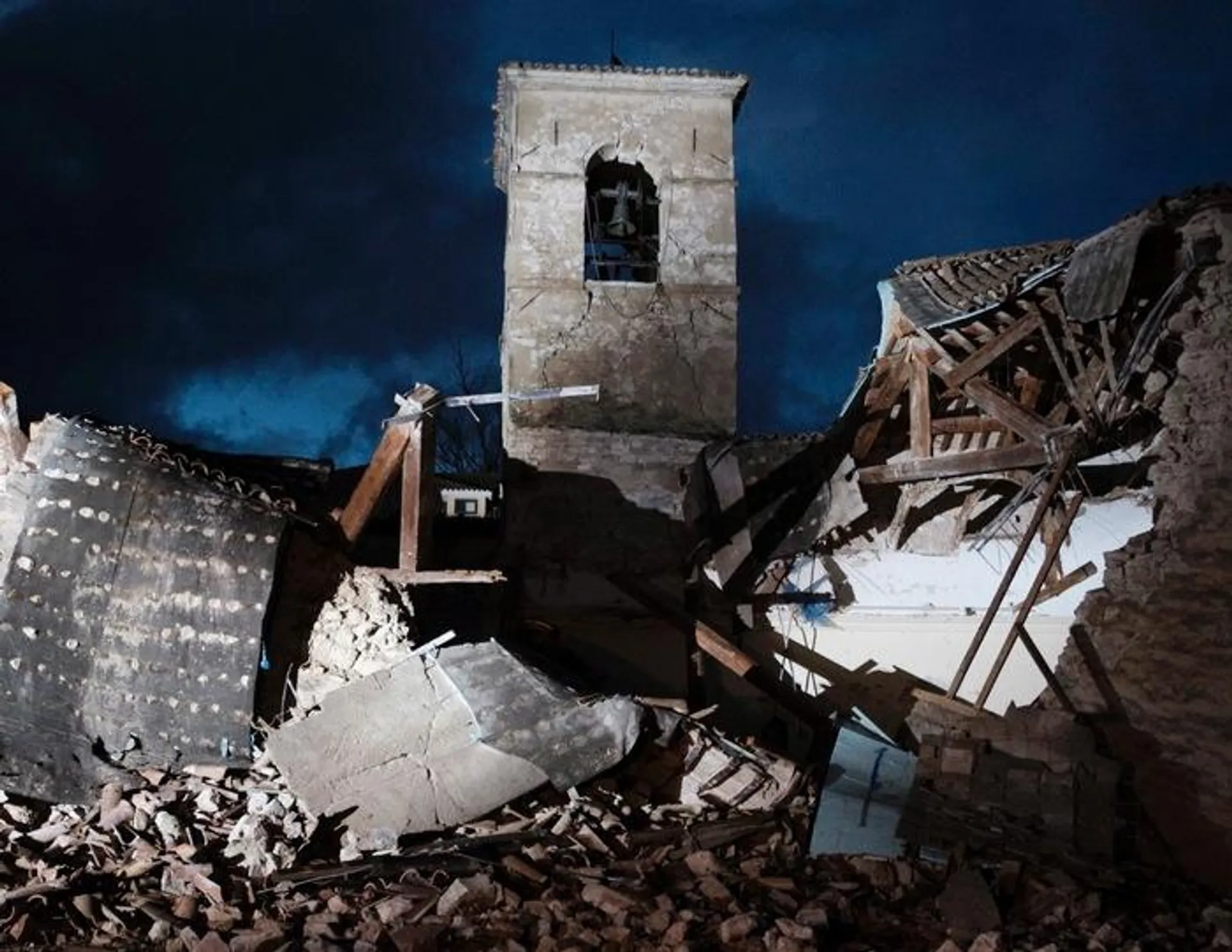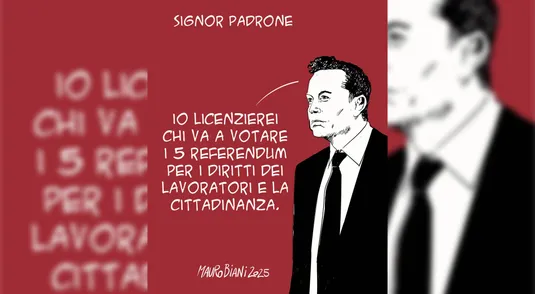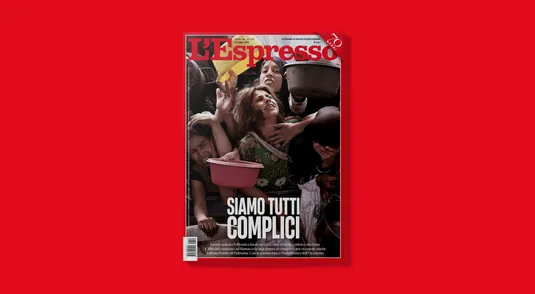The tragic, repetitive earthquakes in the centre of Italy were one more reminder (if another was needed to bolster us to start learning from the lessons of experience, after the lessons like the sudden collapse of the credit-based economy and abrupt end to the consumerist orgy, or the unprecedented and unpredicted flood of foreign strangers knocking to our doors and asking/demanding hospitality) that despite all our – sometimes truly astonishing and awe-inspiring scientific findings and technological inventions – there are limits to our collective capability of insuring our fate, whether collective or individual, against harm done by three indomitable powers: the blindness or vagaries of nature whether inside or outside our bodies, indifference or bitterness of other humans whether neighbouring or distant to our own deeds, and unanticipated disasters conceived by our own miscalculations, blunders, or greed and egotism; in short, of the limits to our powers which the “modern project”, and the mentality it imbued and cultivated, promised to lift to infinity.
Our modern adventure espoused to provide us with comfort and free us from inconvenience; above all, to supply security from unpleasant surprises and mischiefs enacted by powers we fail to control. Gaining mastery over nature meant putting paid to one of the three of such failures. Tested and perfected in the course of the subjugation of nature, the new science-and-technology skills could be deployed to what shall, would and will be done by a similar operation performed on humans. Such recommendation, as we now belatedly realize when counting uneasy (or downright impossible) to remedy damages and losses perpetuated by people afflicted with moral blindness no lesser than nature, was prone to bring about catastrophic results no less grave that those occasionally committed by Nature. Already in 1951, in his published in New York The City in History: Its Origins, Its Transformations, and Its Prospects, Lewis Mumford (alas unheard, and if heard, not listened to) warned about disasters threatened by the mining process - by definition guided by the “catch as you catch can” precept, oblivious to balances and equilibriums, focused on taking and negligent to the need of giving. As it happened, mining process “carried its destructive imagery in every department of activity” while leaving behind millions of square miles of barren fields and millions of their wasted cultivators to bear testimony to the crime.
We could trace if not the birth, than surely the entrenchment and rising domination of such mindset to the 1755 destruction of Lisbon, then one of the richest, most resourceful and proudest centres of incipient Western Civilization, by the triple assault of an earthquake, town fire and deluge. The reaction of public opinion – the unanimous condemnation of leaving Nature to its own resources and rules, was instant and curt, as if only waiting for such an occasion for such a reproof to be publicly discharged and expressed. In the Poème sur le désastre de Lisbonne Voltaire charged Nature, the principal among God's creations, with demonstrating in Lisbon its true – inacceptable to humans - face of moral indifference and criminal injustice ("l'innocent, ainsi que le coupable, subit également ce mal inévitable") and proving thereby its total unfitness to secure victory of good over evil unless taken under human control. Charges raised by Voltaire might have sound deserved and fair in case of moral indifference of nature to human interests and predilections - something that however seems more than doubtful in case of the boisterous certainty that once taken over under human management Nature would carry unambiguous advantages over its predecessor and still an alternative when left to its own regulatory devices.
None of Voltaire’s sanguine expectations stood much chance of coming true either as long as little if any attention was paid to the unanticipated consequences, undesirable side-effects and in the long run apocalyptic consequences of human interference, with which Voltaire as much as his like-minded companions, their disciples and inadvertent followers proclaimed both the desirability and the necessity of human mastery over Nature. And I wouldn’t mention here the series of genocidal excesses and yet more gruesome fact of totalitarian inclinations constantly present in human undertakings emboldened and encouraged made impudence in viewing and treating nature as a docile, submissive, soulless and more importantly defenceless or near-defenceless object of human will, transient wants and fleeting whims.
More than two hundred years after Voltaire’s call to the conquest of Nature we still abominably slowly and reluctantly absorb the truth of the impassable limits set by Nature to human light hearted intentions to transform our natural surroundings into a warehouse of consumer products meant to gratify human lust for comfort, snugness, convenience and luxury. Whenever those limits remind us of their staunch presence, they catch us psychologically and bodily unprepared. No wonder, by the way: it is indeed difficult to swallow, and even more to digest, the news that in case the polar caps continue melting as they currently do, the level of oceans may rise by as much as 90 meters, tantamount to most major cities of the globe (inhabited already by a majority of humans) sharing the legendary fate of Atlantis. Or that the acceleration of water’s evaporating and so absorbing more heat, Earth could veer to become ever more reminiscent of Venus with its average daily high transcends 480 Celsius. Or that the global temperature rising by a mere 6 per cent would be enough to “wipe out just about every life form on the planet” and that there is 5 per cent chance that “the Earth’s temperature will exceed 6,4% by 2100” as the Intergovernmental Panel on Climate Change has recently calculated. And what about pandemics like Black Death which killed every fourth European in the 14th Century, or the Spanish Flue that murdered 50 million people in the 20th in a matter of but two years? Or the predictions by a rising number of authoritative experts that it is but a matter of time before one of the newly appearing virus mutations defy and escape human countermeasures and trigger pandemics of a similar or even wider scale? Note that the above facts are solely a few randomly selected cases picked off-cuff from the long and lengthening list of possibilities capable of putting an end to human species’ life on earth. In the (as argued convincingly by Ilya Prigogine with Isabelle Stengers in their epoch-making study of 1997 The End of Certainty) non-Laplacean universe (including its “natural” part), ruled by contingency, accidents and chance coincidences, some such cases are amenable to calculating and some other utterly surprising: not only unpreventable, but fully and truly unpredictable. The sooner we accept that anything but convenient and consoling truth and start measuring our endeavours by the standards it sets – for our and our as yet unborn grandchildren’s sake.
All that what has been said thus far is not however a sufficient reason to sit hands down and abandon the struggle to render the world more hospitable to human life and life in general. There is still much we can do even within the confines set by the limits which Nature imposed. As Steven Jay Gould insists in his contribution to Conversations about the End of time (Penguin books 1999), “proper ecological ethics mustn’t look to the far-off future of life on other planets, it’s got to concern itself with the quality of our life and the life of other species here and now. There are also extinctions of which we are the unwitting cause. On many occasions we we’ve wiped out entire habitats without even realizing it, and exterminated the species unfortunate enough to have set up home there”(p.33). Gould follows that general rule with an example: “If the level of carbon monoxide increases alarmingly and there is further global warming, we will take steps to bring it under control. Everything depends on human will, on our intelligence, on our capacity to co-operate, on our politicians. The dangers are real, the anxieties legitimate. Some people think the present trend is bound to continue and will lead to disaster. But in fact there’s nothing inevitable about it and we can even hope that we’ll be smart enough to reverse it” (p.35).
I would just add just two riders to Gould’s recommendation.
One: our capabilities, resources, and means of defence are bound to remain limited at least for a very long time to come, but their effectiveness may be considerably expanded by deploying them rightly – equitably and justly – inspired; while being moved and guided by the ethical considerations instead, as we tend to be now, by the desire of momentary profits.
And another: we need to combine reconciliation to the inevitability of our frail placement in the universe with steadfast determination to persist in the struggle to do whatever that place allows us to soften its verdicts and render it more user-friendly. Such determination would surely suffice to keep us busy for life.
Attualità
9 novembre, 2016Mankind overwhelmed by boundaries
The tragic, repetitive earthquakes in the centre of Italy were one more reminder that despite all our there are limits to our collective capability of insuring our fate
LEGGI ANCHE
L'E COMMUNITY



